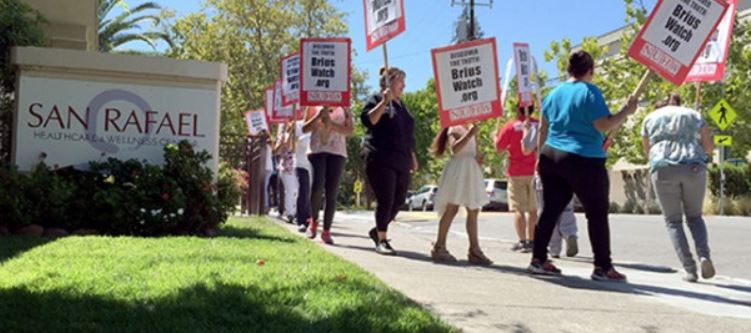California’s largest for-profit nursing home chain, Brius Healthcare, has fallen under scrutiny for its financial practices following an investigation into why its facilities scored poorly on inspections of staffing, overall care, and resident health and wellbeing despite Brius’ seemingly immense funding. The primary owner of Brius Healthcare, Shlomo Rechnitz, began the nursing home conglomerate with a single Los Angeles facility in 2006; since that time, the operation has grown to more than 80 facilities across the state of California. As of 2018, Brius Healthcare received nearly one billion in funding from Medicare and Medicaid alone.
Do you have knowledge of a nursing home scheme to defraud Medicare? Our whistleblower attorneys can help you get compensated for exposing fraud, theft, overbilling or upcoding in long term care facilities.
Call us now at 888-375-9998 for a free qui tam case consultation.
Channeling Money Through Nursing Home Companies
The crux behind the profit setup lies in “related parties,” or companies that nursing home providers or their families own in whole or in part. The nursing home uses operating funds to pay these related parties for services such as financial consulting, which results in the transfer of funds from the nursing home directly to the nursing home operator or their family by way of the related party owned by the individual in question. Currently, more than 70% of the nation’s long-term care facilities engage in this practice.
While utilizing related parties is not illegal, watchdog groups argue that nursing homes overpay their own companies in order to turn a personal profit. The facilities, in contrast, assert that spreading the operating costs to these other businesses controls costs and limits financial liability. Michael Wasserman, the former CEO of the company that provided administrative assistance to almost all of Brius’ facilities, told the Washington Post that Rechnitz’s approach to making financial decisions for his nursing homes “would be made looking at the bottom line rather than what was the right thing to do for the residents.”
In total, Brius-operated nursing homes pay approximately 40% more per bed than other nursing homes in the state; advocates against Rechnitz’s behavior allege that this increase in funds arises from a desire to route the money through related parties and back to Rechnitz and his family. Five companies related to Brius shared their tax returns; one was a related party offering financial counseling, and the other four were holding companies that produced no good or services.
According to an investigation by The Post, the financial counseling party—Boardwalk West Financial Services—is 99% owned by Rechnitz, with his wife Tamar claiming the other 1%. Boardwalk received $2.6 million dollars, of which nearly 1.3 million was paid to Rechnitz and Tamar as a cash distribution. The four holding companies acquired almost $40 million, paying out distributions of $28 million to Rechnitz and his wife.
The State of Brius Nursing Homes
Brius facilities have come under fire across California for their lackluster inspection scores, with staffing being one of the primary concerns. Allegedly, the staffing coordinator for one nursing home was not aware that the state offered mandated paid leave during 2020’s coronavirus pandemic, instead requiring employees to exhaust all of their unpaid sick and vacation time. Brius facilities have been home to a number of residents who sustained severe injuries or even died as a result of insufficient oversight by staff; at one location, a 57-year-old resident was able to exit the building unnoticed and douse herself with gasoline before igniting herself in an alley. She passed away hours later, and Brius offered no comment on the case, citing patient privacy.
This is just one of Brius’ many nursing home neglect and abuse lawsuits in recent years. As the investigation into Brius Healthcare’s financial operations continue, further light may be cast on a growing number of negligence cases in the facilities.


